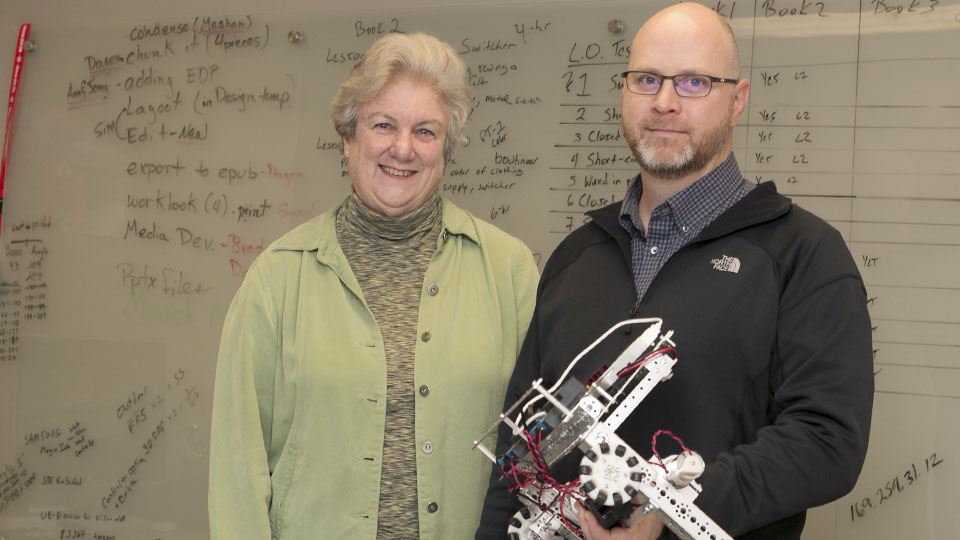
Robots are inspiring the middle school students who may one day engineer them, while also benefitting those who pursue other career paths, according to a new University of Nebraska-Lincoln study.
Led by CYFS faculty affiliate Brad Barker and Gwen Nugent, CYFS research professor, the study examined findings from a student robotics project developed at UNL and implemented across the country—including one site in Cuba. Funded by the National Science Foundation, the project delivered robotics and geospatial mapping curriculum to after-school clubs and summer camps. The curriculum also supported youth robotics competitions.
Across all three formats, participating students reported an increased interest in engineering careers. Given a projected shortfall of engineers in Nebraska and across the country, encouraging students to pursue these fields—and encouraging them early—is of critical importance, Nugent said.
“This project showed how robotics technology can complement what students are learning about STEM in school,” Nugent said. “It can begin to positively orient students to look at engineering as a possible career. And it can extend their learning in ways that are not possible within the confines of school calendars and schedules.”
The project also demonstrated other benefits from robotics programs, regardless of a student’s projected career path. According to the team’s findings, robotics camps, clubs and competitions all helped students hone problem-solving skills while improving their content knowledge of science, technology, engineering and mathematics.
Without a structured curriculum, students often try to fix problems by changing multiple variables at once, said Barker, professor and 4-H science and technology specialist. This then leaves them unable to understand which variable helped solve the problem.
“Our project encouraged problem solving and systematic planning through an iterative design, which really helps students—not just in robotics, but in life,” Barker said.
Beyond the scope of the UNL project, Nebraska robotics competitions continue to provide programs for students of all ages. In 2009, Barker organized the first robotics competition in Nebraska with 20 participating teams. In 2016, he will organize seven competitions with 120 teams from Nebraska and surrounding states.
These competitions use the existing infrastructure of FIRST, a national youth robotics organization that accommodates grades K-12. They feature a face-off in the ring, where teams attempt to outmaneuver each other with machines they’ve designed, built and programmed.
Students are also judged on teamwork, robot design, fundraising, branding and community service—in which they recruit additional participation and support for robotics competitions in their communities. It is this combination of technical and soft skills that makes robotics competitions a valuable learning platform, Barker said.
Many school and community members, who volunteer to serve as mentors and run daylong events, have recognized the value of competitions. These volunteers are the reason robotics competitions continue to grow, Barker said, and help ensure that there’s always a place for children that are interested in robots.
“Our vision was always to have a program where students could start very young and go through high school,” Barker said. “I think these competitions will continue to inspire students to pursue academics in STEM, whether to gain literacy in these areas or pursue a related career. (Competitions) are what has been sustained through this project.”
The team’s study, “Robotics camps, clubs and competitions: Results from a US robotics project,” appeared in the journal Robotics and Autonomous Systems.
Photo gallery featuring Lincoln, Neb., robotics competition: http://cyfs.unl.edu/news/?p=1167#gallery
More details at: http://cyfs.unl.edu/news/?p=1167